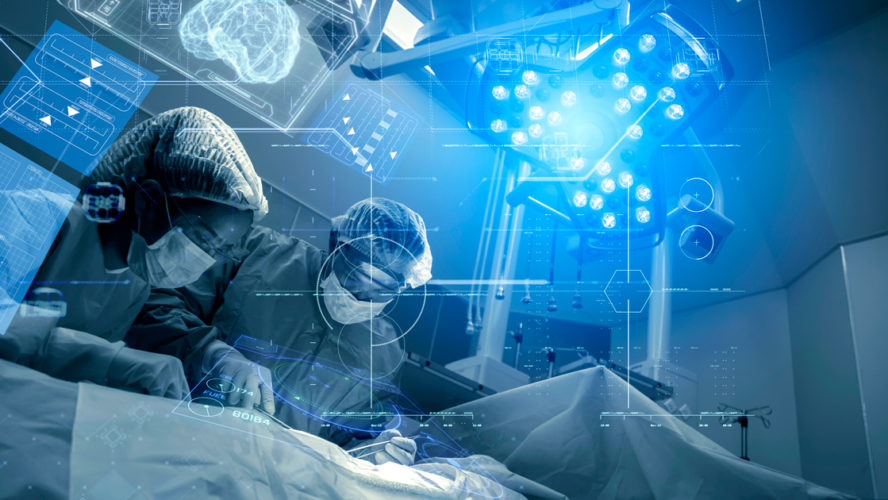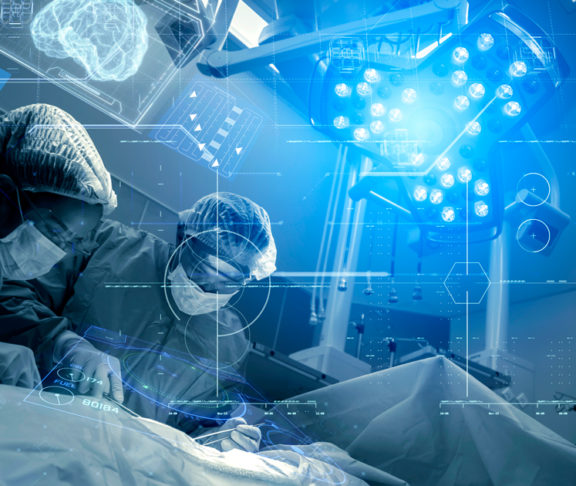
Andrew Davies
Digital Health Lead, ABHI (Association of British Healthtech Industries)
Over time, robots have increasingly been used to automate production lines and operate in difficult environments.
First coined in 1920, in a play by Karel Čapek, the term robot was used to denote a fictional humanoid. The first modern programmable robot was invented by George Devol in 1954, entering service on the General Motors production line in the early sixties.
Robots of today
Today, robots come in all shapes, sizes and applications and are used in an increasing range of medical products and services.
Drones are delivering chemotherapy medicine; diagnostic nanomachines can monitor internal body organs; and research shows opportunities such as artificial antibodies, artificial red and white blood cells and antiviral nanobots. In some care homes, robots are used to help reduce loneliness and improve mental health.
Useful in healthcare
One of the most mature uses of robots in medicine is in Robotic Assisted Surgery (RAS), which allows doctors to perform many types of complex procedures with more precision, flexibility and control than possible with conventional techniques. The first robot-assisted operation on a living patient took place on March 3, 1997, in Belgium, by Dr Jaques Himpens.
In some care homes, robots are used to help reduce loneliness and improve mental health.
Today, we have many systems on the market; and their use is widespread, including applications in cardiology, urology, gynaecology, thoracic and general surgery.The Royal College of Surgeons, in the ‘The Future of Surgery’ report, highlighted that the public was willing to engage with robotics if this meant better access to healthcare with faster and more accurate diagnosis and treatment.
Higher efficiency
A recent report by the ABHI Robotics Assisted Surgery Group has outlined the benefits of RAS versus conventional surgery, which include reduced trauma to patients that can lead to quicker recovery and better experiences, fewer days spent in the hospital and less physical stress on surgeons, potentially extending their working life. The impact of RAS on operational efficiencies within hospitals will continue to develop as technology adoption accelerates.
The NHS is struggling with key waiting times, standards unmet for several years and longer waiting times for patients. Prof. Powis (National Medical Director of NHS England) says that robotic surgery will play a pivotal role in reducing patient waits for surgery as we go forward and we continue to see significant investment in the technology across the United Kingdom.

